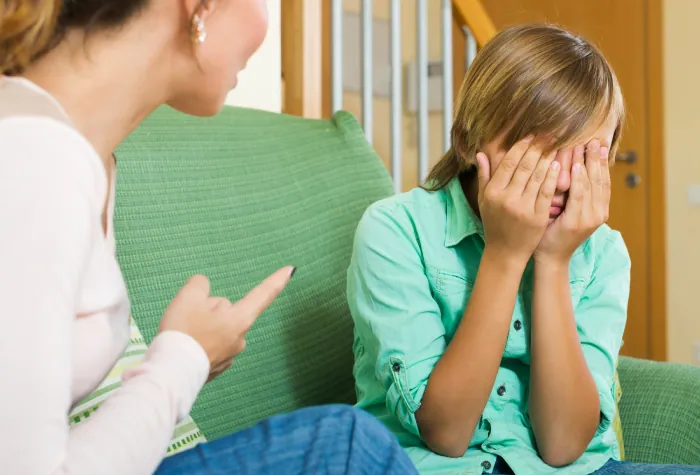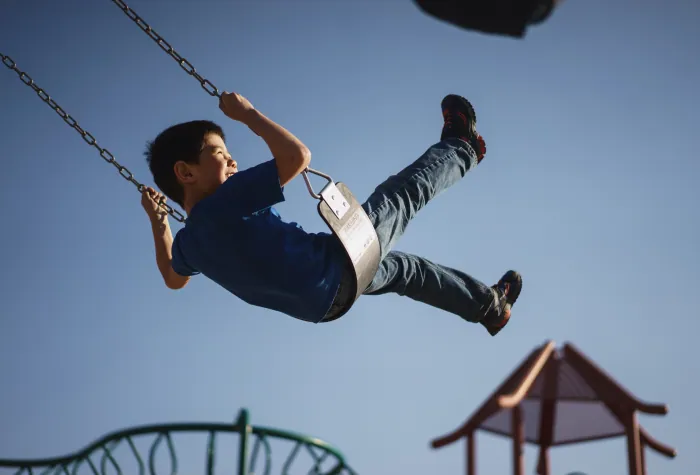“Spare the rod and spoil the child.” Is this still true in our society these days? A recent survey conducted by Singapore Children’s Society and Yale-NUS College revealed that a significant number of parents still resort to harsh disciplinary actions like physical punishments. The lead researcher of the study claims that physical punishment on children could have long term negative effects, like them being more aggressive throughout childhood and adulthood, or showing delinquent or criminal behaviour. Other consequences include children losing trust in parents, them having difficulties resolving conflicts outside the home, like at school, with their friends.
The only outcome out of physical punishment is immediate compliance. If your children only comply with you out of fear, they won’t be internalising the moral values you’re trying to teach them. Experts believe physical punishment and psychological punishment such as shouting, insulting, or shaming are both awful things that should be avoided. This article sheds light on how to discipline kids in safe and effective ways, without exposing them to the risks mentioned above.
Cultivate strong emotional bond

The foundation of disciplining starts with establishing strong bonds of attachment with your children. Once that connection is created, you can correct your child’s behaviour when necessary provided you give them ample time to process that correction. Work out your relationship with your children just like you would for your marriage with a good balance of interactions and emotional stability.
We reap what we sow. If you plant enough love into your child’s heart, you can expect to reap rewards later. Your children will feel loved and emotionally connected to you when you spend quality time together as a family and express your love to them. Doing this will help you understand your child’s point of view and relate with their feelings. This is how you can teach your children about moral values.
Lay down clear rules
Set clear rules and guidelines for your children to establish a daily routine. Convey your expectations clearly so that they understand which rewards or consequences are linked to certain behaviours. See to it that your children are consistent in their routines and are following through on what’s expected of them.
Children can develop good habits early on when you discipline them for bad behaviours by removing their privileges or giving timeouts, also rewarding them for good behaviours by taking them out and spending time together or indulging in any fun activity they wish you to partake in.
Don’t just blindly scold your children when they do something wrong. Ask them to share their perspective and try to get them to understand your perspective. This way of disciplining your children is a lot healthier than resorting to physical punishment.
Understand your child’s mindset

Avoid labelling your child as loud or lazy. Children will find it even harder than adults to shake off these labels from their mind. Experts suggest parents understand their children’s needs at different stages of their lives. Parenting begins when your children are infants. Even though infants can’t understand the language you speak, they can feel and internalise things they feel in their surroundings.
The tone which you use to communicate with your children is very important when it comes to disciplining them. Children sometimes whine as a way of self soothing themselves when they don’t know how to express what they feel. This is because they are still developing and are more emotionally-driven rather than rationally. So, the moment they are swept by a negative emotion, they don’t know what it is they are feeling and express in the form of anger and tantrums. Correct your children’s behaviour by repeating the desired action for your children to follow through.
Educate your children using visual aids like picture cards or children’s books to develop good behaviour. Experts state that children learn by social referencing. This means that children will turn to you for your feedback and approval on whether an action is appropriate or not. Another way to teach children good behaviour is to focus on what they have done well rather than pointing out what they have done wrong. This should help reinforce positive behaviour.
Give your children their own space

As children get older, slowly they will start seeking independence. They want to feel empowered and gain control over their lives. This is when the tension starts to erupt between parents and their children. It is wise to give them some choice over how and when a non-negotiable activity like brushing their teeth before bed is done.
In the primary school years of children, parents usually coach or mentor their children. As your children become teenagers rather than coaching them or feeding them direct instructions, guide them in their thinking and decision making process. Punishments and rewards may have less of an impact on teens. It is more effective to discuss their problems rather than solely punishing them when they do something wrong.
“The way we talk to our children becomes their inner voice” – Peggy O’Mara.
Sometimes, as a parent you might have to deal with a lot of frustration. This may lead to an impulsive physical discipline measure being taken and is usually done out of anger and frustration. At times like this, take a pause before talking to your children about their wrongdoings or step away for a minute, gather your thoughts and then go back into their space.
We hope this article helps you to refine your disciplining methods in a more positive and healthy way. All the best! 🙂
Exam Smart Tips
Exam Smart Tip #1 – How to Encourage Our Kids to Speak Better?
Exam Smart Tip #2 – How to avoid carelessness?
Exam Smart Tip #3 – Establishing Routines!
Exam Smart Tip #4 – Let’s Read Carefully!
Exam Smart Tip #5 – Beating the Exam Fever!
Exam Smart Tip #6 – How to Eat Right for the Exams?
Exam Smart Tip #7 – How to Avoid a Meltdown?
Exam Smart Tip #8 – Taking Stress out of Tests
Who We Are
Mission statement – “Empower every student to achieve full potential”
88tuition Pte Ltd offers the best PSLE Tuition Singapore for children looking to ace the PSLE exam. With effective learning materials and high-quality explanatory videos by experienced trainers, children are provided with the best online PSLE tuition.
With the basics learnt well, children will be able to grasp advanced concepts easily. Looking for the best PSLE math tuition, PSLE Science tuition and PSLE English tuition in Singapore? 88tuition has got you covered. The online training videos and assessments are designed in a way that children are made to enjoy the learning process.
UEN 201817310C
271 Bukit Timah Road; #03-08; Singapore 259708



